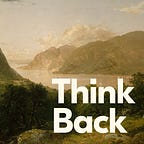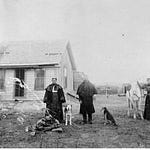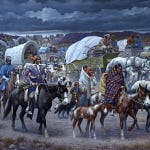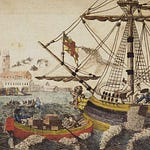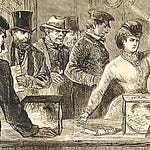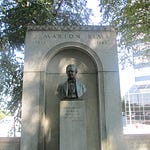In this episode, I speak with journalist Matthew Davis, author of the new book A Biography of a Mountain: The Making and Meaning of Mount Rushmore. Davis’s deeply reported narrative traces the contested history of the monument, from its carving into the sacred Black Hills to the political battles that have shaped its meaning ever since.
Drawing connections between the monument’s origins, the dispossession of the Lakota, and Rushmore’s place in today’s culture wars, Davis explores how a democratic nation came to celebrate itself through a mountain-sized tableau of presidential faces—and what that says about the ongoing debate over American ideals.
The conversation delves into the symbols and rituals of America’s “civil religion,” and how Mount Rushmore fits into (and unsettles) that tradition. Davis recounts beginning the project during the early pandemic, spurred in part by President Trump’s 2020 speech at the site amid the George Floyd uprising. We talk about why the monument was built, whose stories it erases, and how its meaning continues to shift—especially in an age when national myths are being fiercely reconsidered.
A Biography of a Mountain offers a fresh, accessible look at one of America’s most iconic and misunderstood symbols. Tune in for a lively discussion about the mountain, the monument, and what both reveal about the country today.
Thank you so much to Abaye Steinmetz-Silber for playing the music for this episode. Check out his songs at Apple or Spotify or (my preferred streaming service) Qobuz.
Matthew Davis, “The Empire Makers,” Slate, March 13, 2025.


